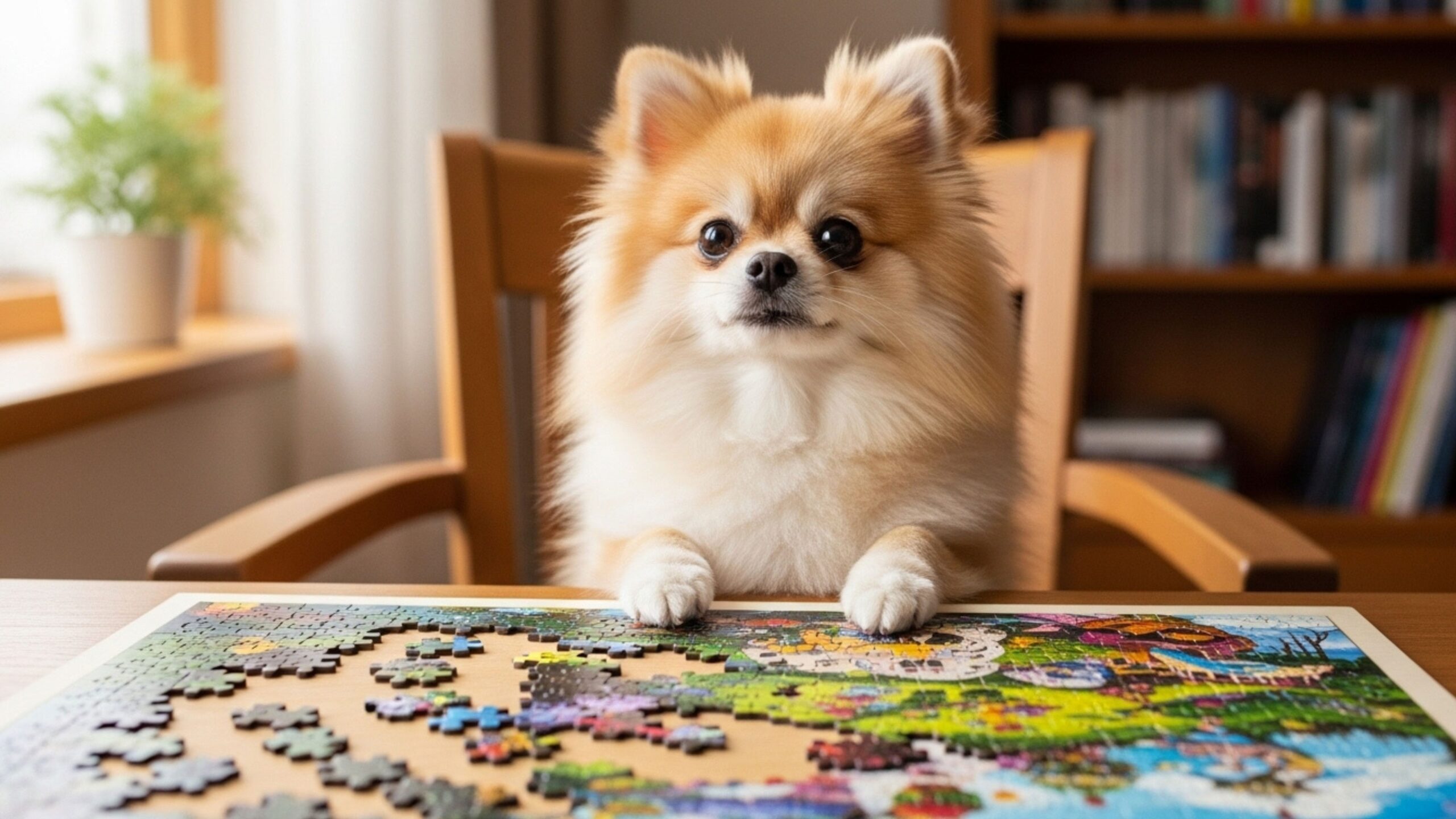Let’s admit it, we all need a smart pup, or in other words, a tiny teacup dog that doesn’t just entertain you with its little clownish acts but also gives you a real mental challenge. These dogs may look cute and delicate, but don’t underestimate their brainpower!
If you’re a puzzle lover, you probably enjoy anything that lets you brainstorm or something clever, tricky, and satisfying to chew on. Now imagine meeting a miniature dog that studies your every move, observes, tests your ideas, and comes up with the solutions that actually surprise you.
These small dogs are inherently smart and like something critical. They can perform any task you give, and don’t be fooled by their size; those interactive movements with them can turn into the kind of mini challenge you genuinely look forward to.
Intelligent Teacup Dog Breeds for Puzzle Lovers
1. Yorkshire Terrier
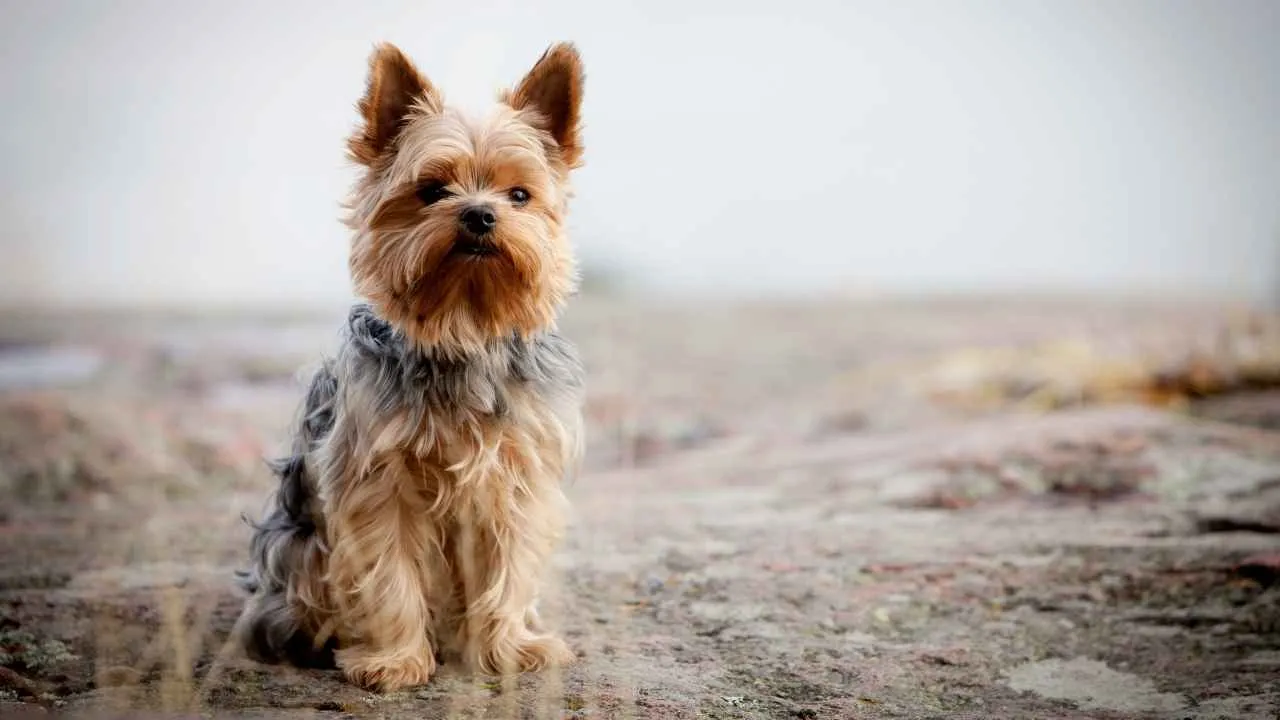
Yorkies barely tip the scales at 7 pounds, but their energy and playful spirit belie their small size. These energetic breeds are also known to be ‘Miniature lion’ according to Royal Canin.
Curious and full of charm, they love being part of every mental game. They are independent in nature and rank in the top 30 among the smartest dog breeds worldwide.
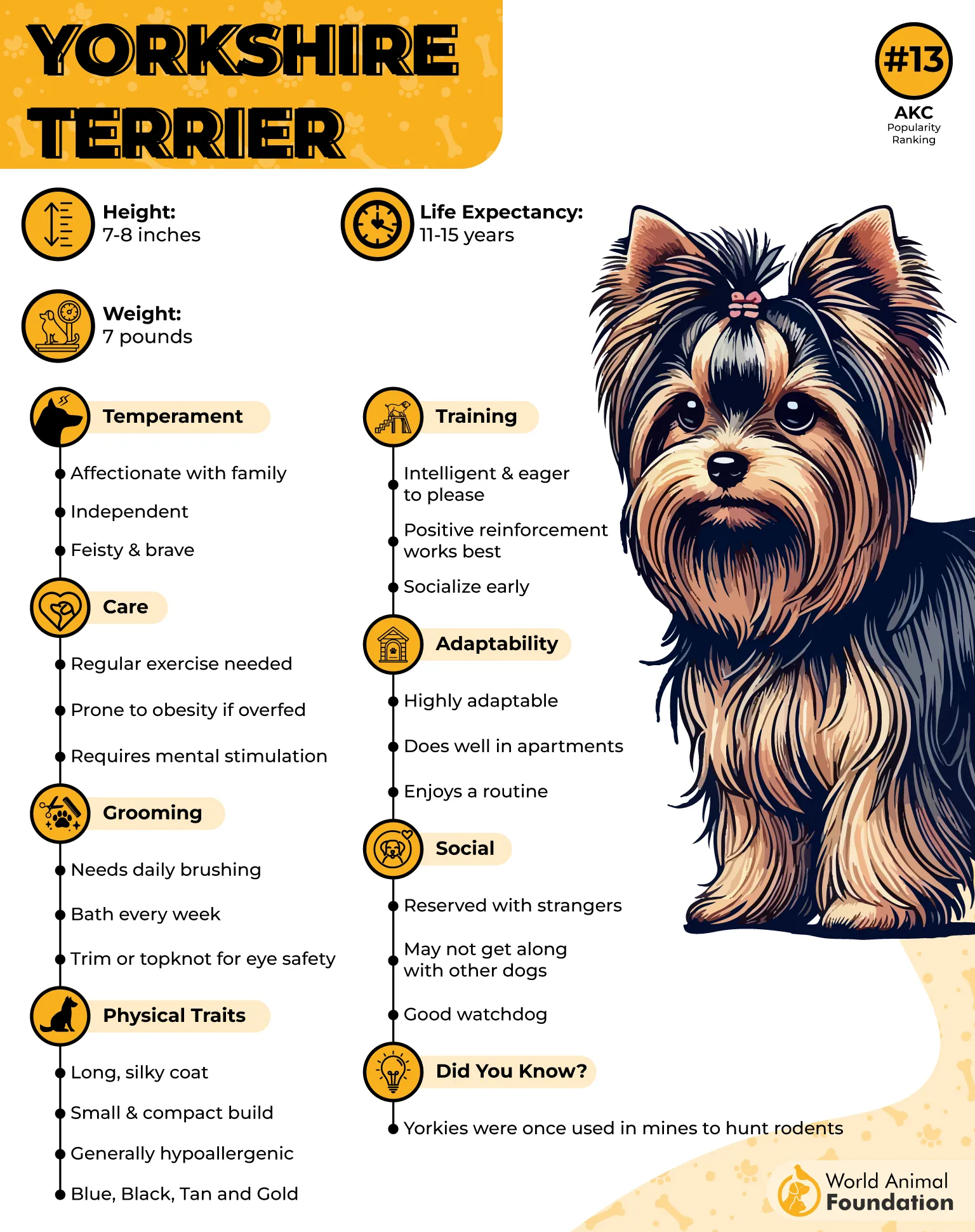
Problem-solving abilities
Yorkies are active little thinkers. They love figuring out treats from jars, solving puzzles, learning new tricks, and solving complex challenges. These clever canines make every playtime an opportunity to test their skills.
These dogs are well-suited for those who love playing puzzles. Yorkshire Terriers can offer a lot of fun, obey basic commands, and adjust to new situations with ease.
This intelligent dog breed keeps your mind engaged and makes the perfect pocket-sized partner. They enjoy keeping up with their creative and mischievous minds.
Fun Tricks and Brain Games
Love solving puzzle toys to earn treats.
Enjoy hide-and-seek with toys to enhance their focus and instincts.
Solve small tasks given by their owners just for fun.
2. Poodle
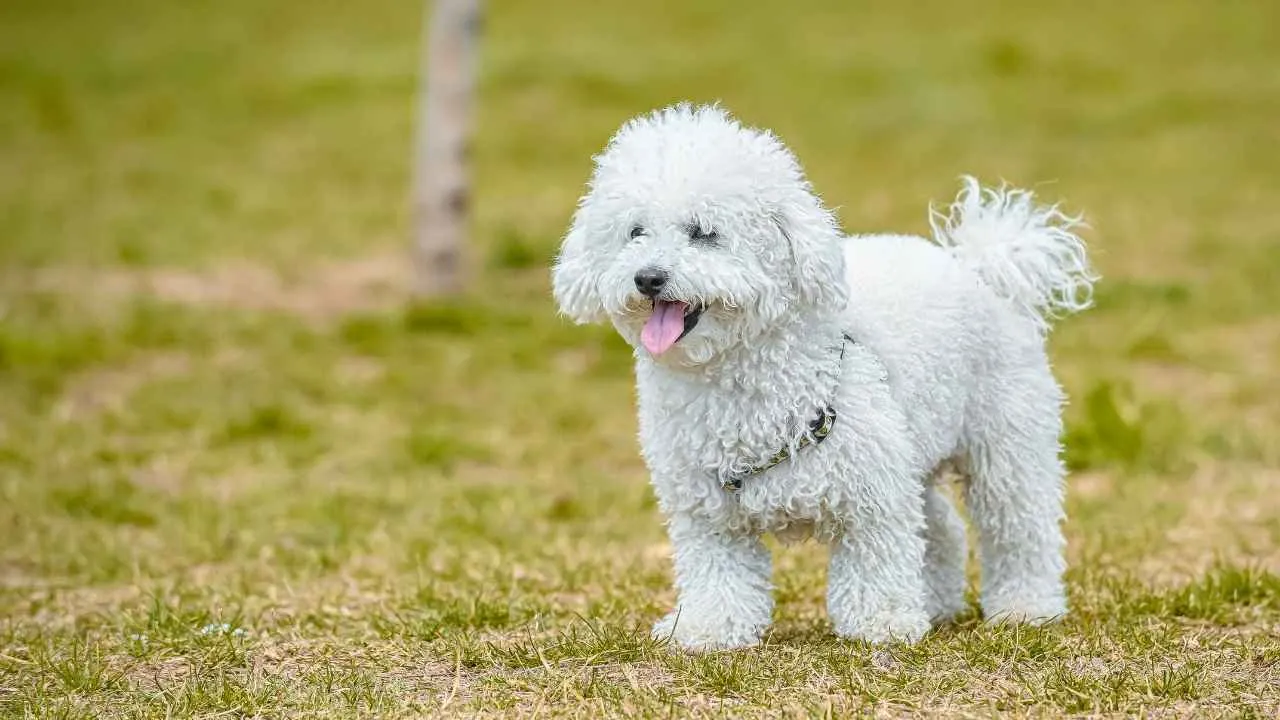
Poodles, whether Standard, Miniature, or Toy, are elegant, lively, and endlessly smart companions. Beneath their hypoallergenic coats lies an athletic, sharp-minded dog who’s always ready for some mentally challenging tasks.
However, we are talking about a teacup (Toy) Poodle, which is as cute as its name.
Problem-solving abilities
Poodles are smartest in games, training, and interactive activities. Their intelligence is beyond basic obedience and playing with toys. These little geniuses rank 2nd in canine intelligence. This smartness is not limited to just critical thinking.
They can easily learn up to 300 words, recognize their owner’s routines, and figure out problems on their own.
Poodles are no ordinary pups; they are also very popular. Forbes has ranked the Poodle 5th among the most popular dog breeds.
With all that, they are also an emotionally intelligent dog breed. They notice subtle changes in your behavior and respond accordingly to your moods. With proper training, these intelligent breeds reach their full potential.
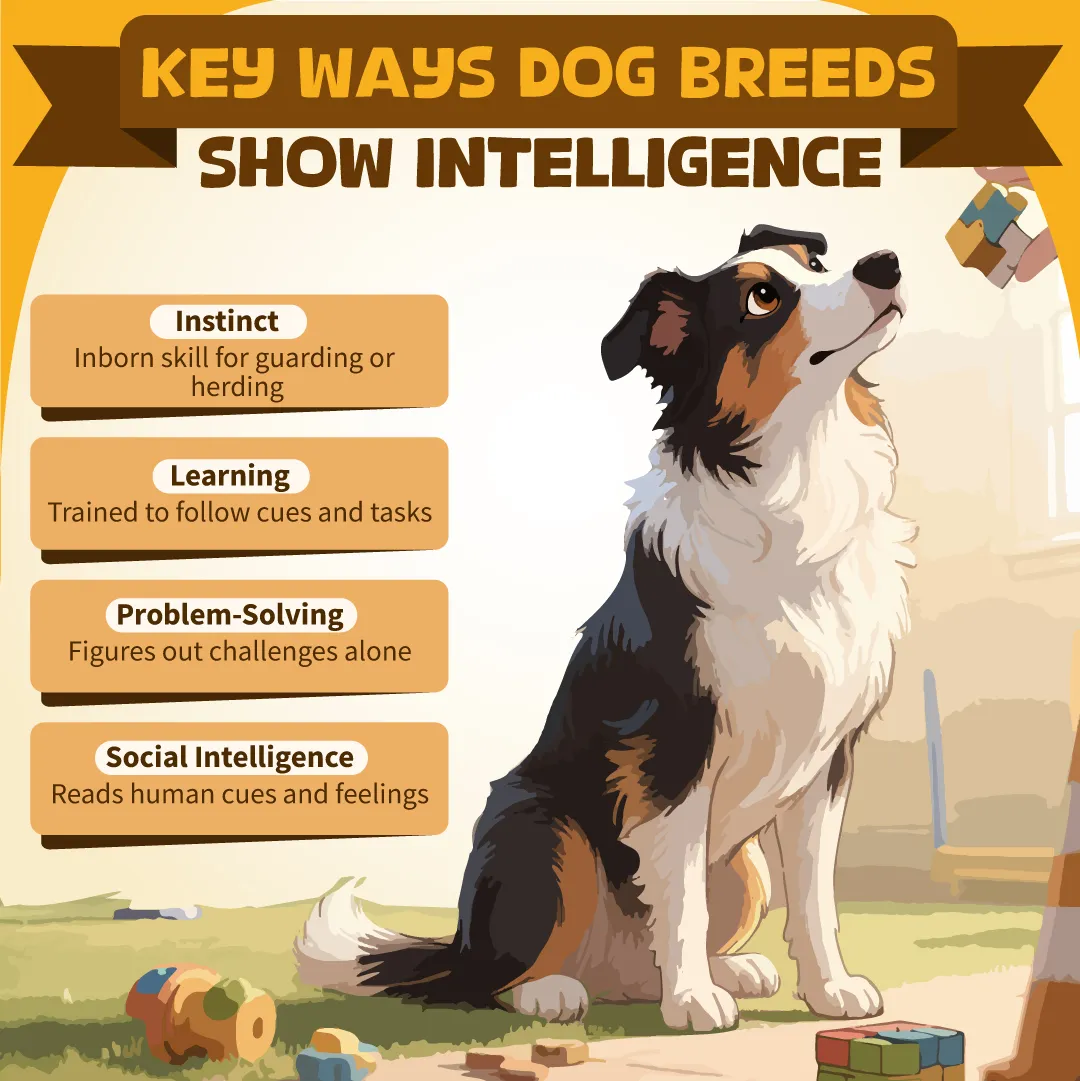
Poodles are a puzzle lover’s dream; their quick thinking makes every game more exciting.
Fun Tricks and Brain Games
Learn advanced tricks quickly, whether it’s fetch or agility moves.
Solve puzzle toys and games with great efficiency.
Excel in both mental and physical activity.
3. Pomeranian
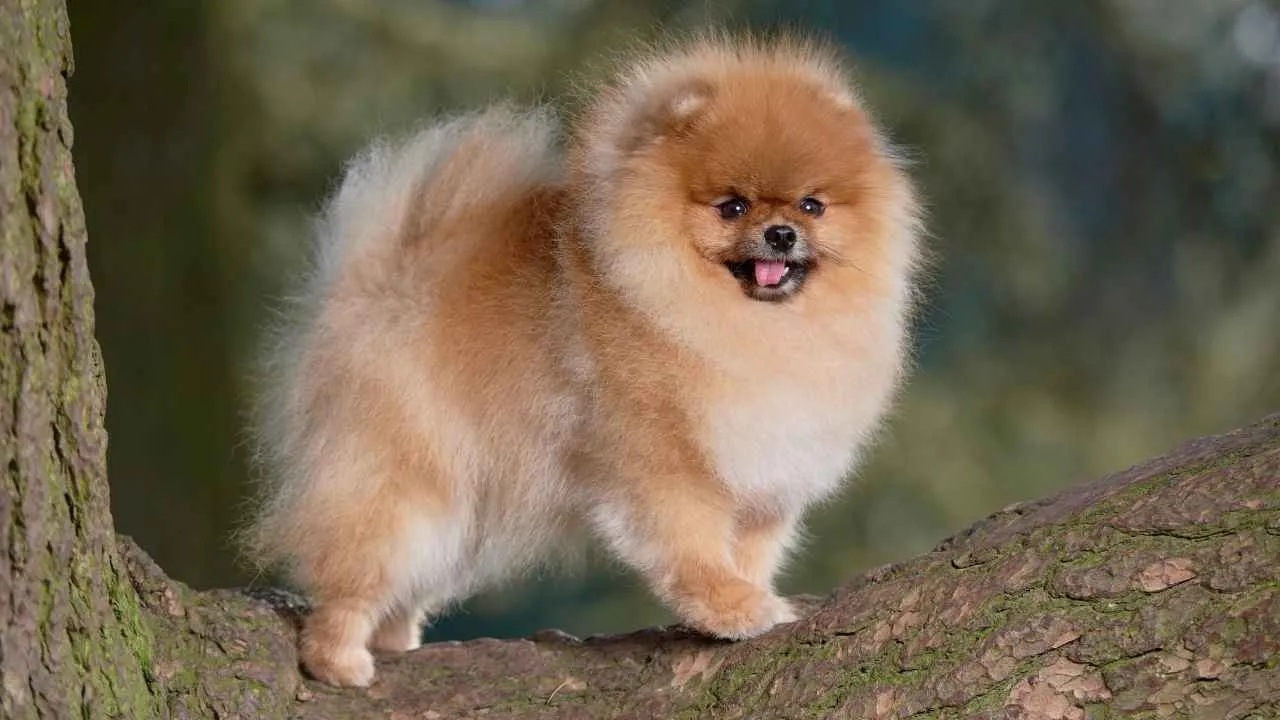
When it comes to smart dogs, the Pomeranian is often overlooked despite its sharp mind and bright nature. Pomeranians ranked 23rd among the most intelligent dog breeds, showing they’re far smarter than they actually look. Pomeranians stay happy in family life and are ideal for first-time owners.
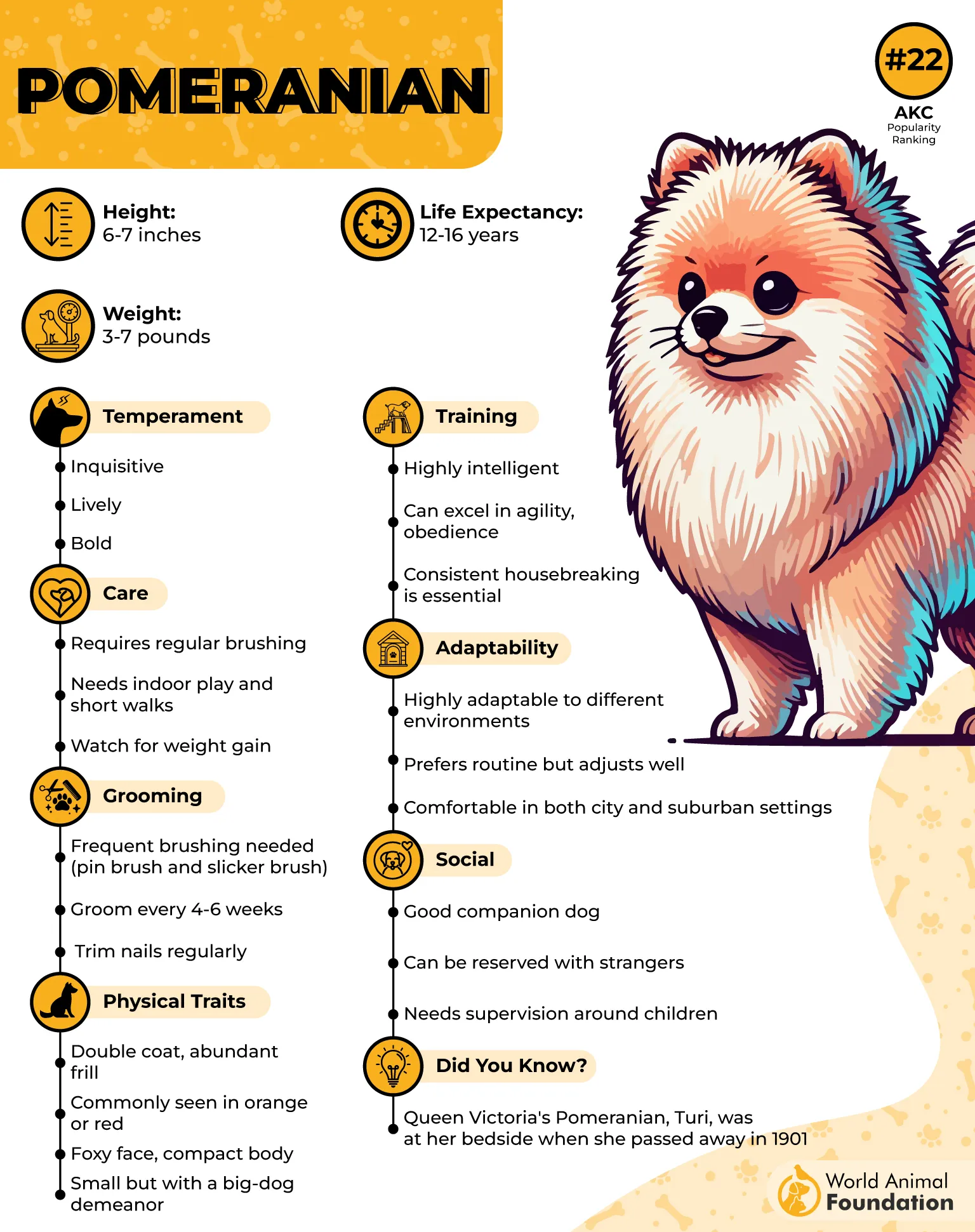
Problem-solving abilities
These fluffy companions think they’re quick learners with a strong sense of curiosity. They have an instinct to explore, investigate, and figure things out on their own. Many Pomeranian owners notice that they open cabinets and find hidden treats on their own.
They also show strong cognitive skills through memory, comprehension, and task recognition. Pom Poms are also good to remember owner’s routines, understand multiple cues, and respond well to training (step by step).
With consistent mental stimulation -like scent games, puzzle treats, or trick training, they demonstrate how capable they are.
Fun Tricks and Brain Games
Love quick tricks like spin or high-five.
Enjoy puzzle toys and interactive games.
Stay sharp with memory challenges.
4. Cavalier King Charles Spaniel

The Cavalier King Charles Spaniel is a gentle, cheerful little pal with a hint of royalty in every move. Even though they are more like a cuddle dog, they have a quiet kind of smartness. Their sweet temperament and lively personality are brimming with warmth.
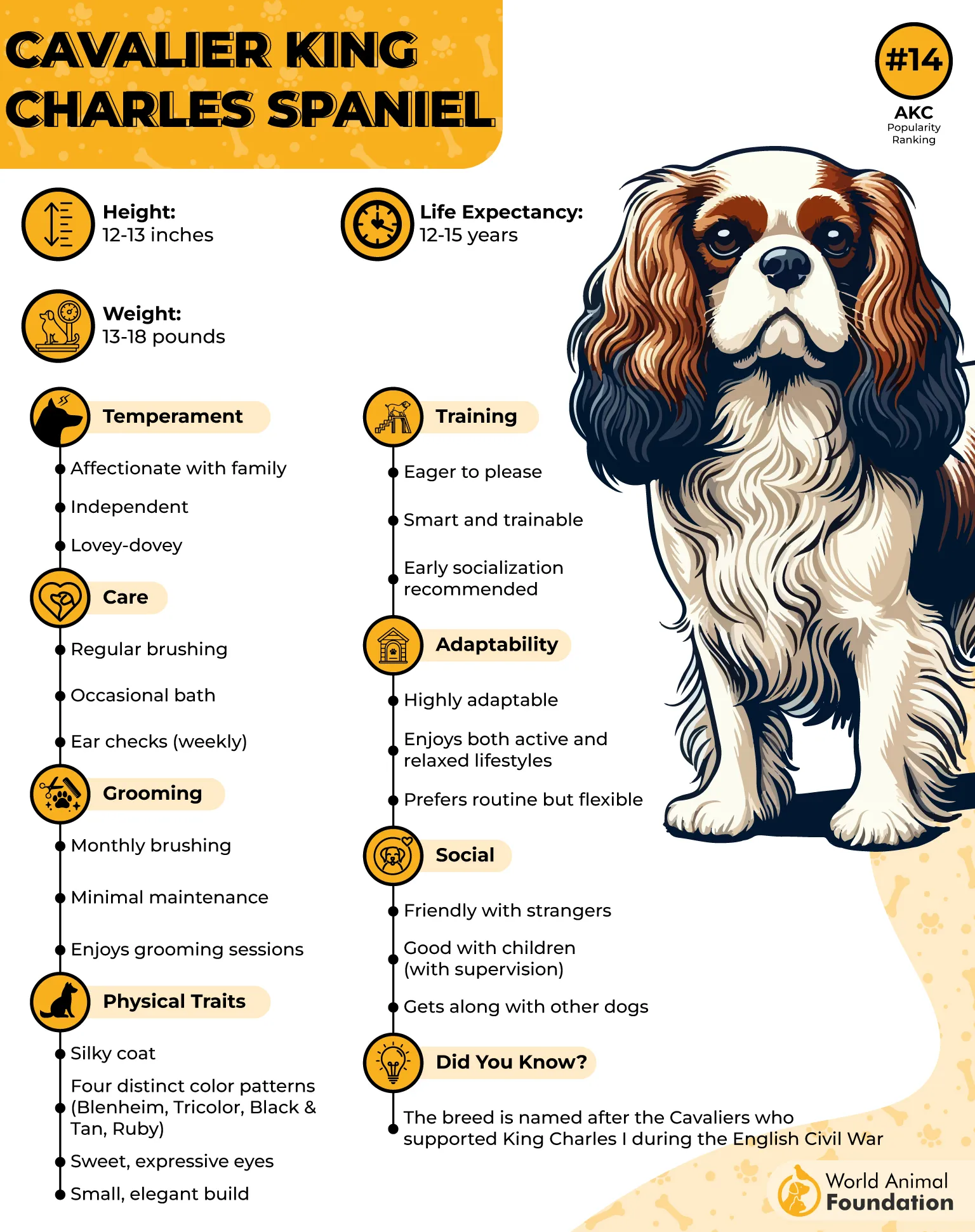
Problem-solving abilities
These little furballs are average in working intelligence but highly popular in the dog world. They learn patterns and other new commands quickly out of curiosity. Also, they can adapt to new environments and routines. Cavaliers are ranked 44th out of 110 breeds in Coren’s The Intelligence of Dogs.
They have high emotional intelligence, which means they can understand their owner’s mood and adjust their behavior depending on their mood.
However, they can be a bit stubborn sometimes, so it’s essential to give them early socialization. Cavaliers respond exceptionally well to positive reinforcement techniques.
Fun Tricks and Brain Games
Puzzle Lovers will enjoy keeping their curious minds engaged with fun challenges.
Enjoy simple tricks like “spin in a circle” or “sit pretty”.
“Follow the Fingers” helps them solve a mini maze by finger gestures.
Teach them “name-the-toy”; this can help them remember new words.
5. Papillon
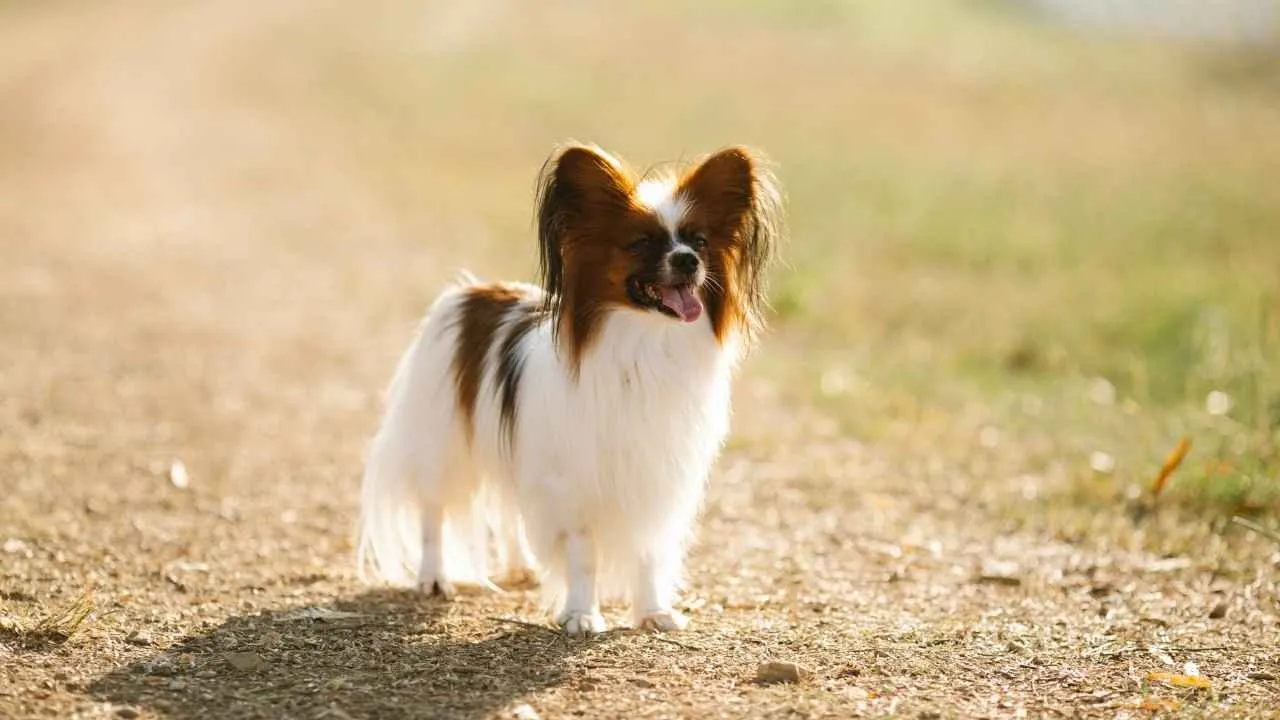
Papillons might be tiny in size, but they carry the charm of nobility and royalty in every step. Despite having a cheerful personality and an affectionate nature, they sit proudly at 8th place in the canine IQ. These bright little pups are highly intelligent and always ready to surprise you.
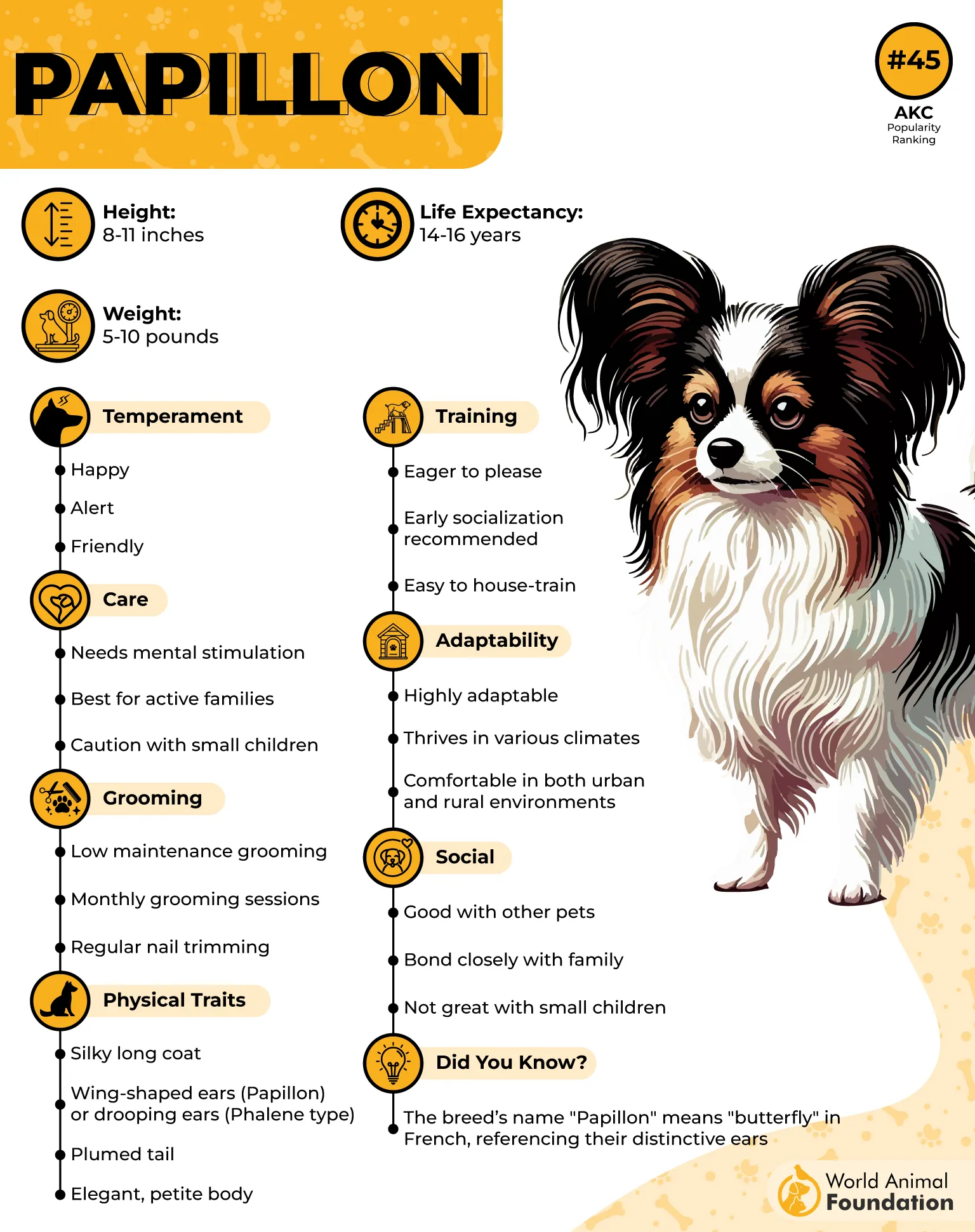
Problem-solving abilities
Papillons are little masterminds in disguise. Give them a challenge, like figuring out how to find a missing toy, and they won’t leave a single stone unturned to reach it. Their cleverness isn’t ready to give up on anything, hence they have a great problem-solving ability.
They are even better at solving everyday puzzles. Papillons are observant in nature; they observe and understand your actions, react faster than you expect.
They can learn advanced tricks and commands in no time, and they also remember commands without practice, making them perfect partners for puzzle enthusiasts.
Fun Tricks and Brain Games
Teach them to spin in a specific direction (left or right), and they’ll enjoy it.
A mini-agility course can do wonders for this tiny champion.
Create a little obstacle tunnel with chairs and watch them puzzle out of it.
6. Havanese
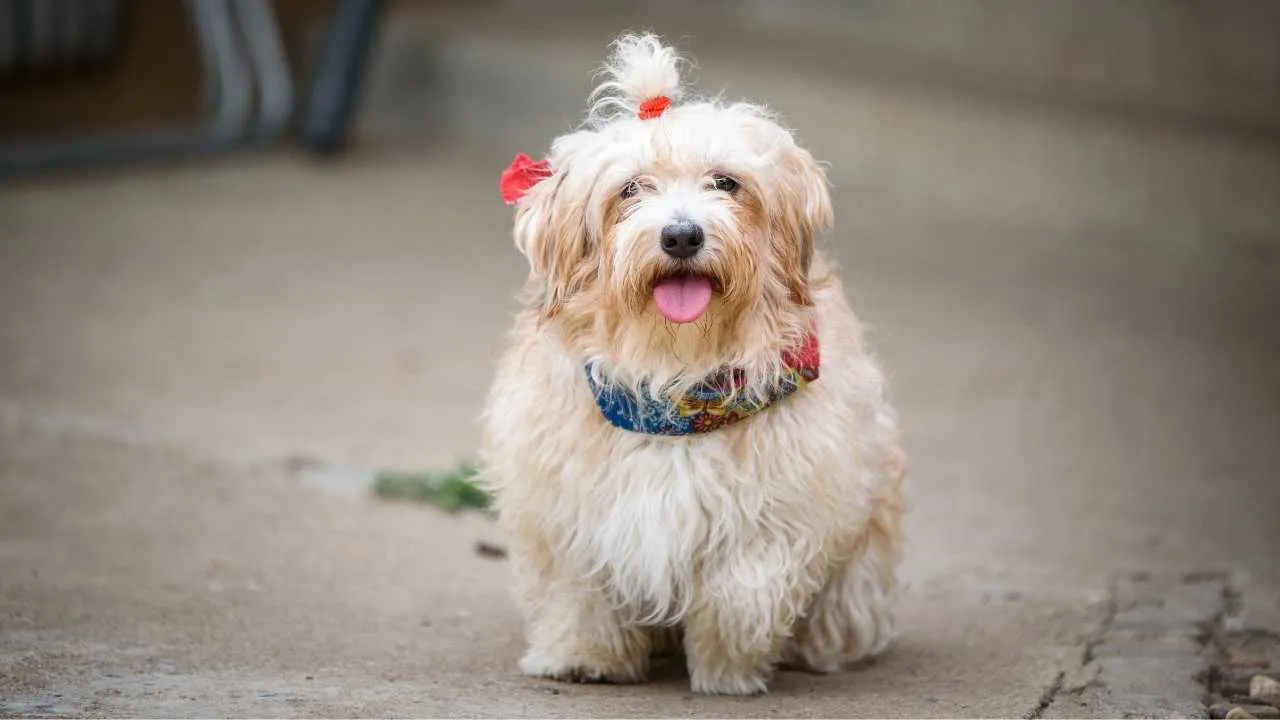
Havanese are playful, fun-loving, a bit humorous dogs with a care-free attitude and small size. They were originally bred in Cuba as a loving companion. Don’t let their size fool you; these petite-sized pups are sharp, observant, and always scheming new ways to steal your attention.
Havanese dogs have an eager-to-please nature and moderate energy levels, according to Purina. So, they make great companions for the family.
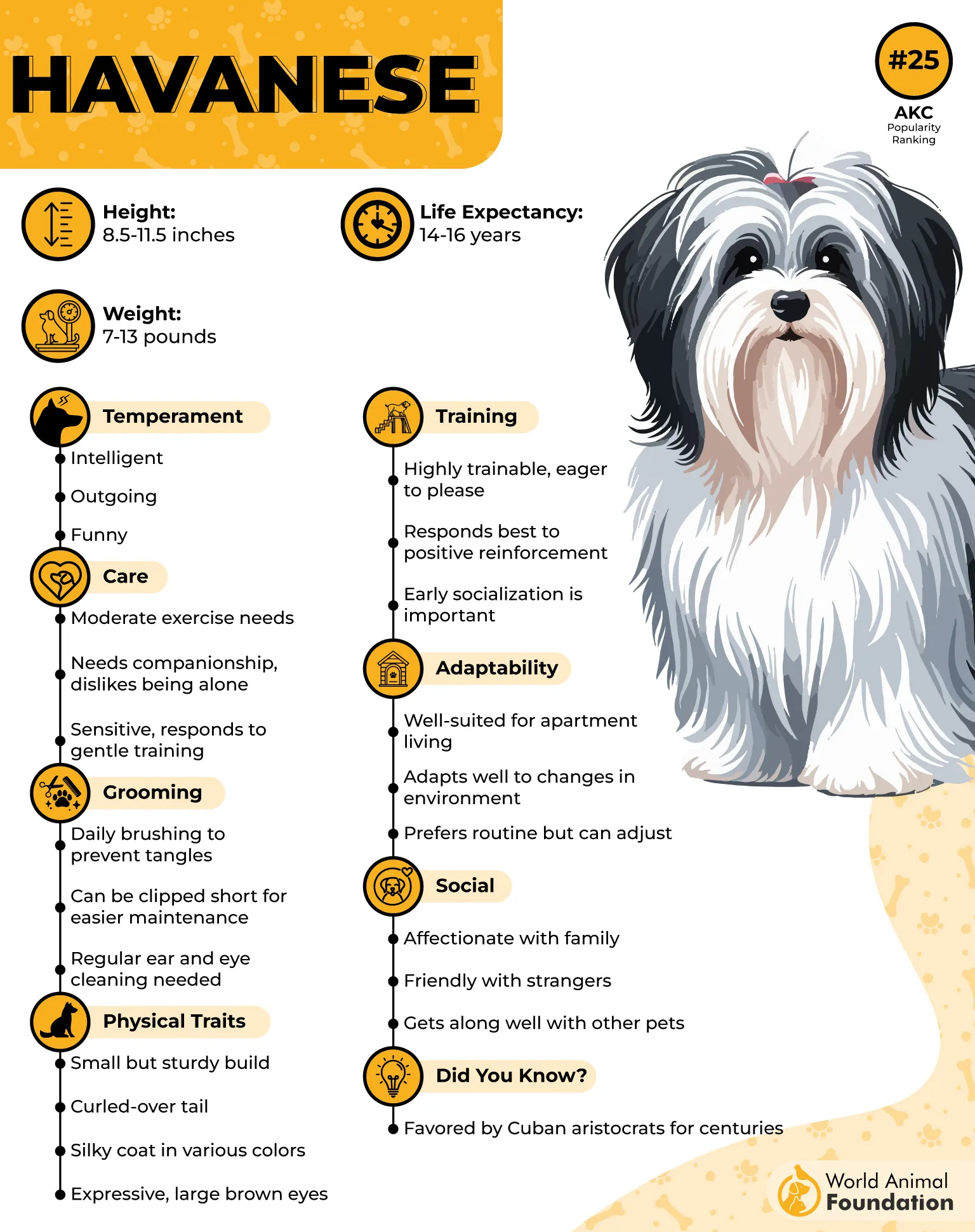
Problem-solving abilities
These little charmers have a knack for learning new tricks, picking up cues, and playing with interactive toys. They love challenges, adapt to any living situation, and thrive in small houses, too.
Havanese are average in working intelligence, but their emotional sensitivity is very high, and they form deep bonds with their owners.
They are enthusiastic about learning new things, so teaching and training them is easier. They need almost 25-40 repetitions to learn a new command. Consistent training can keep them motivated and eager to learn more.
Fun Tricks and Brain Games
Master the classic jump, roll over, and fetch methods.
Navigate a makeshift obstacle course in your backyard and use praises or treats as motivation.
Puzzle toys, treat dispensers, and Kong toys stuffed with delights ensure they remain engaged.
7. Chihuahua
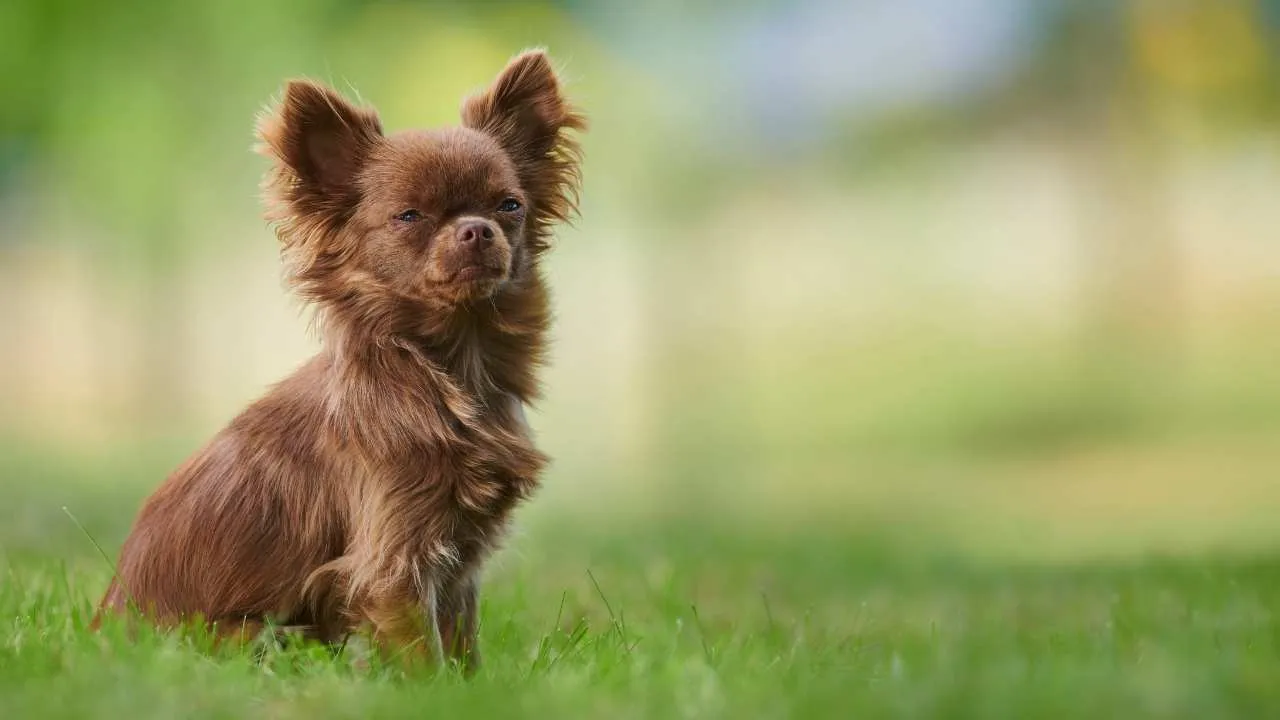
Chihuahuas are recognized as the smallest dog breeds. They’re surprisingly smart for their size, always notice your routine and habits, even the smallest changes in the house. Those big eyes never leave anything unnoticed from their sight.
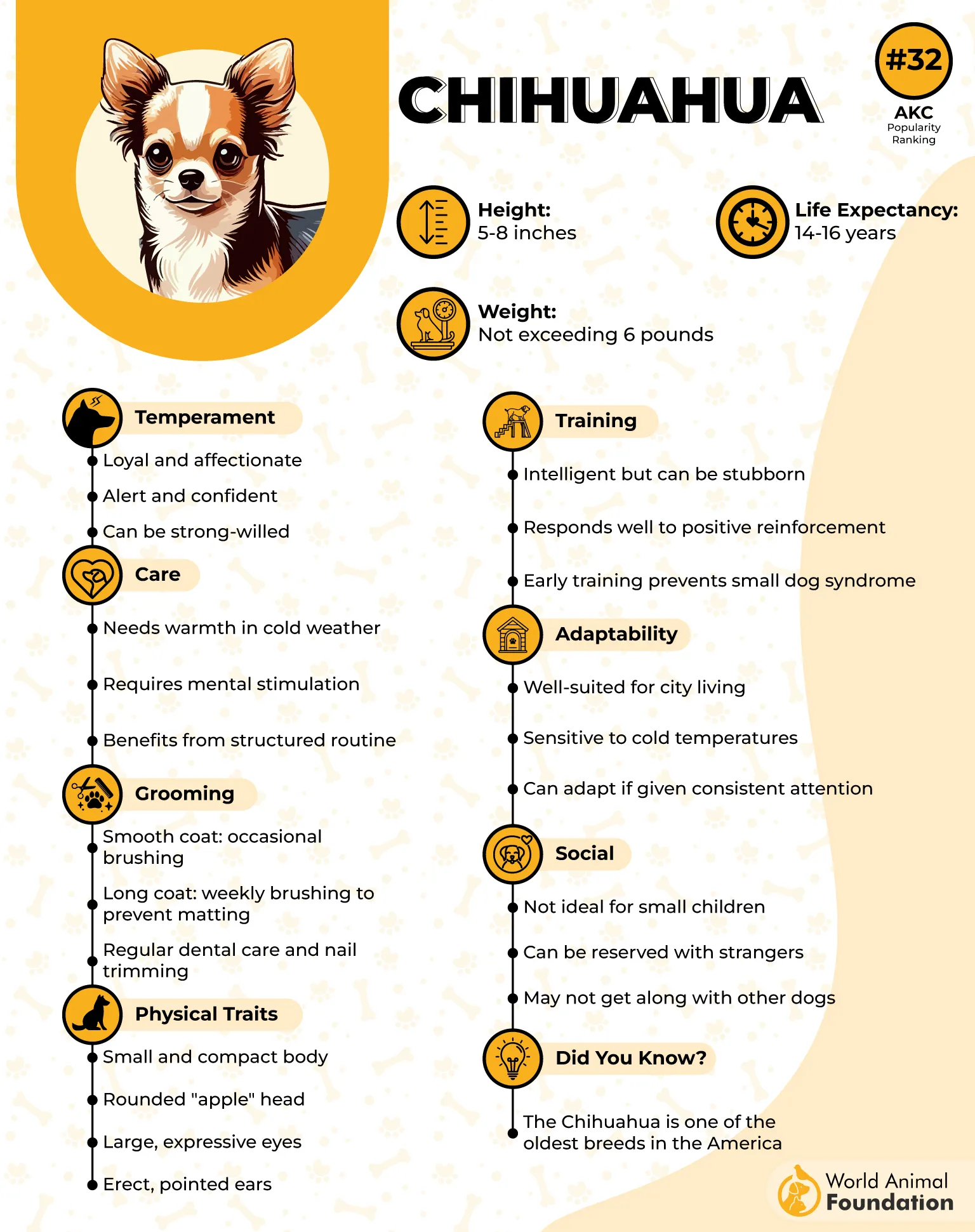
Problem-solving abilities
Chihuahuas may be small and fragile in appearance, but they’re fast learners when it comes to solving little daily puzzles. They watch closely, remember details, and use that information to their advantage. Their alert and active nature helps them pick up cues quickly.
They often use clever tricks to get whatever they want, reach their favorite spot- even figure out where snacks are kept. They might be average in canine IQ, but respond well to gentle training and treats. Keeping sessions short and fun helps keep their focus sharp.
Fun Tricks and Brain Games
Playing hide-and-seek with them can be a lot of fun. Start with basic training and then find a hidden spot.
Treat-dispensing puzzles are great to keep them mentally engaged.
Set up a mini agility course in your backyard. Start with low jumps and easy obstacles- encourage them as they cover the course.
Conclusion
Hope you understand that the puzzle isn’t for humans anymore. Some small, teacup pups outsmart you, too! Miniature in size, but these smart, sassy, and devious dogs can keep you on your toes with their playful antics.
These cuddly companions are often overlooked for their intelligence, as dog breeds like Border Collies, German Shepherds, and Golden Retrievers often take the limelight with their smart, enthusiastic brains.
Training them is even easier; these small dogs just need a little pat on their back or some affection to learn and play. They sniff, think, solve, and repeat until they learn a new lesson. For puzzle lovers, these toy dogs can be both a playful companion and a loving pet.


